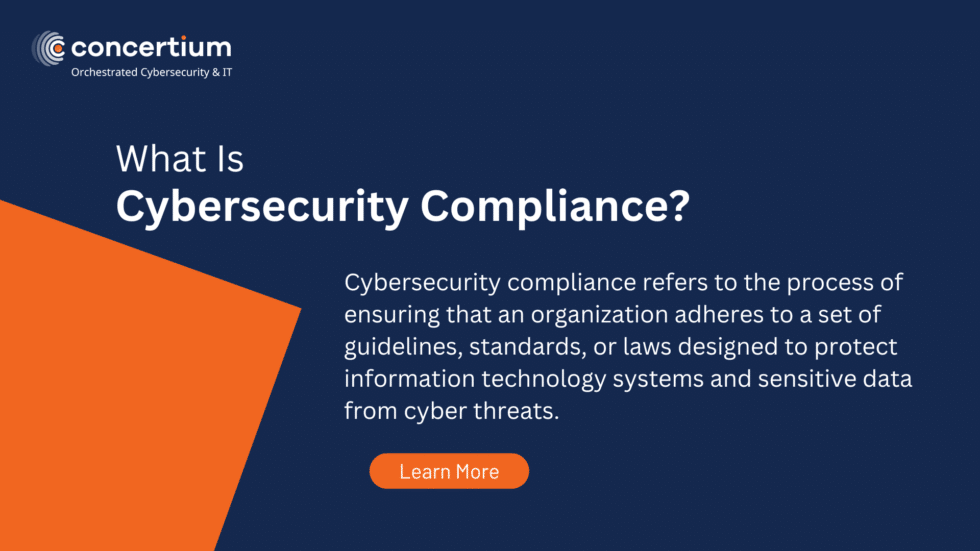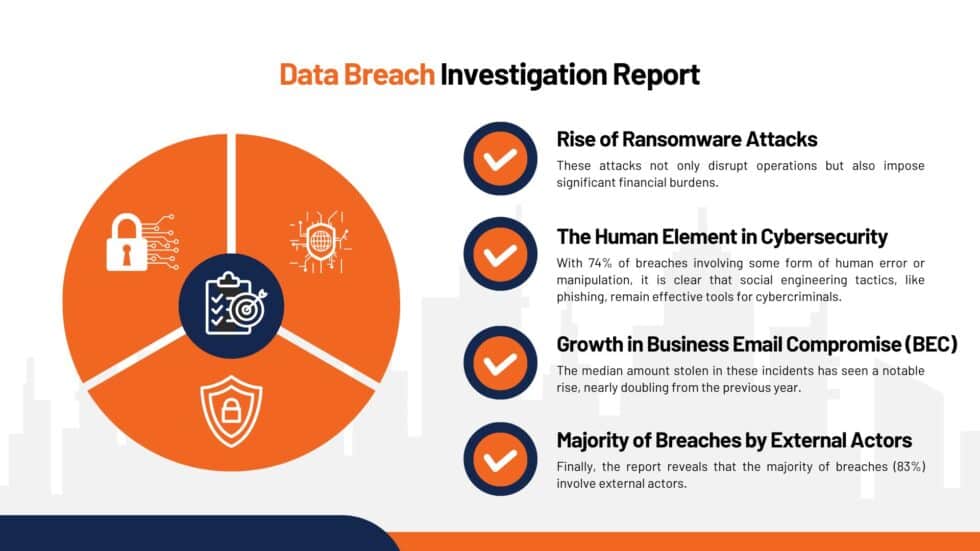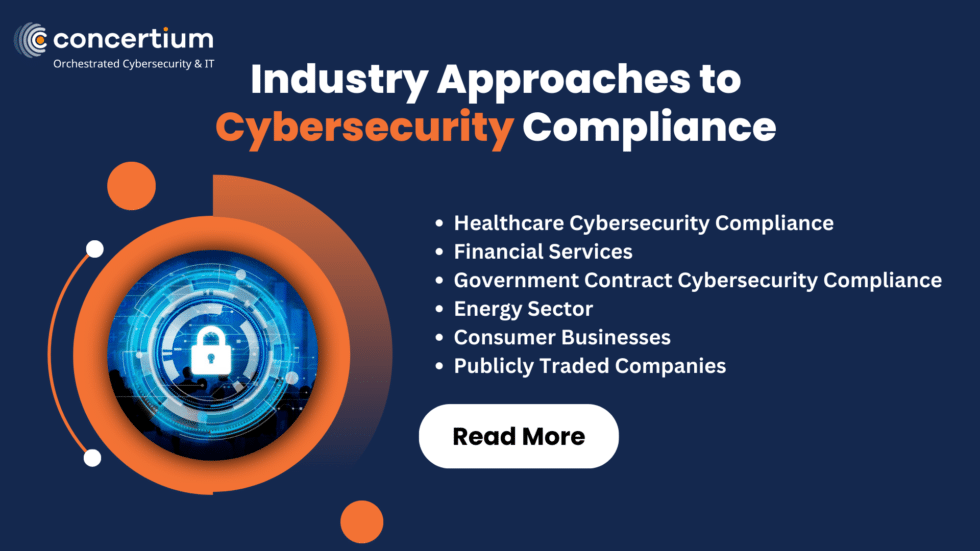As of 2024, global cybersecurity trends indicate a sharp increase in sophisticated cyber attacks, driven by advancements in artificial intelligence and machine learning. Cybercriminals are employing more advanced tactics, including AI-generated phishing emails and deepfake technology, making traditional security measures less effective.
The rise of IoT devices has also expanded the attack surface, with attacks on these devices increasing by over 30% in the last year. This surge underscores the necessity for robust and dynamic cybersecurity compliance strategies. In response, organizations are increasingly investing in advanced threat detection and response systems. The global cybersecurity market is projected to grow significantly, driven by the need to counter these evolving threats. Incorporating these trends into your cybersecurity compliance program is essential for staying ahead of potential risks and safeguarding your digital assets.
Compliance is not just a buzzword, but a critical part of protecting sensitive information and maintaining the trust of your customers. From industry standards and regulations to federal information security management acts, there are numerous compliance standards and regulations that organizations need to adhere to. Understanding compliance and building a cybersecurity compliance program is essential to safeguard against cyberattacks, ensuring data security, and meet regulatory requirements. So let’s dive into the world of cybersecurity compliance and why it is needed in today’s business landscape.
What Is Cybersecurity Compliance?
Now that we understand the importance of cybersecurity compliance, let’s take a closer look at the specific requirements and considerations that organizations need to keep in mind.
One crucial aspect of cybersecurity compliance is the need to stay updated with the latest regulatory standards and requirements. This means being aware of frameworks such as HIPAA, GDPR, and PCI DSS, as well as the specific compliance regulations that apply to your industry. To achieve and maintain compliance, organizations need to build a robust cybersecurity compliance plan that encompasses all the necessary security measures.
In order to ensure compliance, organizations must also conduct regular risk assessments and implement risk management strategies. This involves identifying potential cyber risks, evaluating the effectiveness of security controls, and addressing any vulnerabilities that could lead to a data breach.
Furthermore, maintaining cybersecurity compliance requires ongoing effort and dedication. It involves staying informed about cybersecurity regulations and standards, keeping up with any changes or updates, and conducting regular compliance audits to ensure that the organization meets the requirements.
Overall, achieving and maintaining compliance with laws and regulations is a multifaceted process that requires a comprehensive understanding of cybersecurity measures, regulatory compliance requirements, and the organization’s specific compliance needs.
Why Is Compliance Important in Cybersecurity?
With cyber threats constantly evolving, organizations must stay informed and prepared to prevent potential attacks. To achieve this, it’s essential to understand the importance of compliance in cybersecurity.
Maintaining a robust cybersecurity program involves adhering to industry-specific regulations and standards, such as the Payment Card Industry Data Security Standard (PCI DSS), General Data Protection Regulation (GDPR), and the National Institute of Standards and Technology (NIST) cybersecurity framework. Compliance refers to the alignment of an organization’s practices with these cybersecurity standards and regulations, ensuring that the organization meets the requirements set forth by the relevant authorities.
By implementing a cybersecurity compliance plan, organizations can build a strong security program that mitigates cybersecurity risks. Compliance management involves creating a compliance checklist to ensure that the organization’s compliance team is well-versed in cybersecurity compliance requirements. Additionally, organizations need to know about cybersecurity compliance to keep up with the ever-changing landscape of cyber threats.
Understanding the significance of compliance and security standards is crucial for organizations to protect sensitive health information, maintain their security posture, and achieve cybersecurity maturity model certification. Therefore, integrating compliance and security into an organization’s operations is fundamental to safeguarding against major cybersecurity incidents and ensuring the overall well-being of the organization.
Significance of Cybersecurity Compliance
After understanding the alarming statistics about cyber attacks on small businesses, it’s clear that the significance of cyber security compliance cannot be overstated. Implementing a strong cyber security compliance plan is crucial for the safety and success of your organization.
Consider the potential implications of a cyber security breach on your business. The financial impact alone could be devastating, not to mention the loss of customer trust and damage to your reputation. Building a robust cyber security compliance plan is not just about meeting regulations; it’s about protecting your organization from potential disaster.
By adhering to cyber security regulations and standards, you are taking proactive steps to safeguard your business from the increasing threat of cyber criminals. It’s like installing a security system in your business to protect against intruders.
The truth is, small businesses are particularly vulnerable to cyber attacks, making it even more crucial to prioritize your organization’s compliance. By gaining a better understanding of compliance 101 and implementing a solid cybersecurity compliance plan, you are taking a proactive approach to protecting your business and your customers. This proactive approach can help prevent potential breaches and ensure the safety and security of your organization.
The 2023 Data Breach Investigation Report sheds light on some startling statistics that underline the importance of robust cyber defenses.
The Need for Cybersecurity Compliance
When it comes to regulatory penalties avoidance, it’s crucial to have a solid risk management system in place. This helps in identifying potential areas of vulnerability and taking proactive measures to minimize cyber threats. By building a cybersecurity compliance plan, businesses can ensure that their information security management system is up to par, reducing the risk of facing penalties.
Additionally, achieving SOC 2 compliance can further enhance the security posture, demonstrating to clients and stakeholders the commitment to protecting sensitive information. All in all, compliance is important, and having a robust risk management system in place is key to maintaining regulatory standards and avoiding potential penalties.
Regulatory Penalties Avoidance
Regulatory penalties avoidance is a critical reason to build a cybersecurity compliance plan. Failure to adhere to the necessary security regulations can result in hefty fines and penalties for your organization. By implementing a robust cybersecurity compliance plan, you can minimize the risk of facing such regulatory penalties. This not only protects your business from financial implications but also demonstrates your commitment to upholding the highest standards of data security.
Avoiding regulatory penalties is not just about avoiding financial repercussions; it’s also about maintaining the trust and confidence of your customers and stakeholders. When they see that your organization takes cybersecurity compliance seriously, it enhances your reputation and gives them peace of mind knowing that their sensitive information is in good hands. So, by prioritizing regulatory penalties avoidance through cybersecurity compliance, you’re not just protecting your business legally, but also building trust and goodwill with your customers.
Risk Management System
Transitioning from the importance of regulatory penalties avoidance, let’s delve into the risk management system aspect of cybersecurity compliance. When organizations implement a robust risk management system, they are essentially safeguarding their data, network, and infrastructure from potential threats. This involves monitoring and analyzing potential risks to ensure that security policies are in place to mitigate any vulnerabilities.
A good risk management system not only protects sensitive data but also ensures that the organization is prepared to handle any potential security threats. It involves creating and implementing security protocols, identifying potential weaknesses, and continuously monitoring for any unusual activities that could indicate a security breach. By adhering to cybersecurity compliance, organizations can create a comprehensive risk management system that provides a solid foundation for protecting their valuable assets.
Benefits of Cyber Security Compliance
To begin with, avoiding penalties and fines is crucial for any business, as it can save resources and prevent legal issues. Building customer trust and brand reputation is equally important, as it leads to customer loyalty and positive word-of-mouth. Improved data management ensures efficiency and accuracy in handling information. Enhanced security safeguards against potential threats and instills confidence in stakeholders.
Additionally, improved access control and accountability create a sense of order and responsibility within the organization. Each of these subtopics plays a vital role in the overall benefits of cyber security compliance, contributing to the success and sustainability of the business.
Avoid Penalties and Fines
As a cybersecurity compliance company, you understand the importance of avoiding penalties and fines. Non-compliance with the latest rules and regulations can result in costly consequences for businesses. Failing to adhere to cyber security requirements can lead to significant financial losses, legal penalties, and damaged reputation. By staying up to date with compliance standards, you can help businesses mitigate these risks and avoid the negative impact of fines and penalties.
This proactive approach not only saves money but also ensures that businesses maintain a positive reputation and trust with their customers. By emphasizing the importance of avoiding penalties and fines, you can guide businesses towards a more secure and compliant future, protecting their financial well-being and safeguarding their reputation.
Build Customer Trust and Brand Reputation
Building customer trust and brand reputation is crucial for the success of any business. A strong and reliable brand can attract more customers and retain the existing ones, creating a loyal customer base. By adhering to cybersecurity compliance regulations, you can demonstrate to your customers that their data and privacy are your top priority.
This not only enhances your reputation but also builds trust among your customers, showing them that you are committed to protecting their sensitive information.
When customers feel secure and confident in your ability to safeguard their data, they are more likely to continue doing business with you and recommend your services to others. Ultimately, prioritizing cybersecurity compliance can have a positive impact on your brand reputation and customer trust, leading to long-term success and growth for your business.
Improved Data Management
Improved data management is crucial for businesses to maintain a secure and streamlined process for handling, modifying, and accessing customer information. Without proper data management, businesses risk losing track of sensitive information and where it is stored. By implementing effective data management practices, businesses can ensure that they have a clear understanding of the data they possess and how it is being utilized.
This not only helps in meeting compliance requirements but also allows for better decision-making and improved customer service. With improved data management, businesses can safeguard their sensitive information and provide a higher level of trust and security to their customers. It also ensures that data is readily accessible for necessary business operations, leading to increased efficiency and effectiveness in day-to-day activities.
Enhanced Security
Enhanced security is a crucial benefit of cyber security compliance. By following the latest regulations and standards, businesses can create a robust cyber-security program and establish organization-level policies to protect their systems and data. This ensures that the business is better equipped to prevent and address potential security threats and attacks. With a focus on compliance, businesses can also designate chief information security officers who are responsible for overseeing the security posture and implementing necessary measures to enhance the overall security of the organization.
This proactive approach not only minimizes the risk of security breaches but also allows businesses to stay ahead of potential cyber threats. By prioritizing enhanced security through compliance, businesses can create a safer and more secure environment for their data and systems, ultimately safeguarding their operations and reputation.
Improved Access Control and Accountability
Improved access control and accountability are crucial aspects of maintaining the security and integrity of your business. By implementing strict access control measures, you can ensure that only authorized personnel have access to sensitive information, minimizing the risk of unauthorized data breaches. Accountability within your organization will help in creating a culture of responsibility and awareness when it comes to handling sensitive data.
By establishing a clear chain of accountability, you can track and monitor the access to critical information, ensuring that any security incidents can be traced back to the responsible party. This level of accountability also helps in identifying potential weaknesses in your security measures, allowing you to take proactive steps to address them before they become a significant threat. Ultimately, improved access control and accountability will bolster your overall security posture and give you peace of mind in the face of evolving cyber threats.
Industry Approaches to Cybersecurity Compliance
As we delve into the various industry approaches to cybersecurity compliance, we’ll explore the unique challenges and strategies within healthcare, financial services, federal and government contracts, the energy sector, consumer businesses, and publicly traded companies.
Each sector faces its own set of cybersecurity demands and must navigate specific regulations and standards. By understanding the distinct requirements of each industry, organizations can better prepare for potential threats and ensure the protection of sensitive data. Let’s take a closer look at how these industries approach cybersecurity compliance and the measures they take to safeguard their operations and customers.
1. Healthcare Cybersecurity Compliance
Transitioning from the diverse landscape of cybersecurity compliance, let’s delve into the crucial realm of Healthcare Cybersecurity Compliance. In the healthcare industry, protecting patient data is of utmost importance. Healthcare organizations, insurers, and third-party service providers must adhere to stringent regulations and implement robust security measures to safeguard sensitive medical information.
Healthcare Cybersecurity Compliance is not just a regulatory requirement; it’s a vital aspect of ensuring patient trust and confidentiality. From electronic health records to telemedicine platforms, the digital transformation of healthcare has brought about unprecedented opportunities, but it has also heightened the need for robust cybersecurity measures.
With the increasing adoption of connected medical devices and the digitization of patient records, healthcare organizations must remain vigilant in safeguarding against cyber threats. The interconnected nature of healthcare systems and the potential impact of a data breach on patient care make cybersecurity compliance an essential focus area for the industry.
2. Financial Services
Transitioning to the financial services sector, the landscape of cybersecurity compliance is abundant with regulations that aim to safeguard sensitive financial information and mitigate ongoing cyber threats. Financial institutions must adhere to stringent regulatory requirements to ensure the security of their data and systems.
One of the most common sets of regulations in the financial services sector is found in the Federal Financial Institution Examination Council handbook (FFIEC IT). These regulations serve as a guide for financial institutions to establish robust cybersecurity measures and protect themselves from potential cyber risks. Additionally, financial organizations must stay updated on the latest regulatory changes to maintain a strong security posture and protect against evolving threats.
As the financial sector continues to be a prime target for cyber attacks, compliance with these regulations is crucial to safeguarding the integrity and confidentiality of financial data. By prioritizing cybersecurity compliance, financial institutions can enhance their resilience and maintain the trust of their customers and stakeholders.
3. US Federal & Government Contract Cybersecurity Compliance
As the government continues to strengthen its cybersecurity measures, US Federal & Government Contract Cybersecurity Compliance is becoming increasingly critical. Federal agencies and government contractors must adhere to stringent security standards to protect sensitive information and infrastructure. The recent Executive Order issued by the Biden administration highlights the urgency of this matter, emphasizing the need for new tools and standards to ensure the security of software supply chains.
With the growing number of cyber threats targeting federal infrastructure, it’s essential for government entities and contractors to prioritize cybersecurity and implement robust measures to safeguard against potential attacks. Failure to meet these cybersecurity standards could not only compromise critical government systems but also pose a significant risk to national security. Therefore, it’s imperative for federal agencies and government contractors to stay updated and compliant with the latest cybersecurity regulations to mitigate potential security risks.
4. Energy Sector
The energy sector is a vital component of our everyday lives, powering our homes, businesses, and transportation. With the increasing reliance on digital technologies and interconnected systems, the industry faces growing challenges in safeguarding its infrastructure from malicious cyber threats.
Given the critical nature of the energy sector, it is imperative for organizations within this industry to fortify their defenses and resilience against cyber attacks. The sector’s complex network of oil, gas, and electricity providers, as well as the interconnected supply chain, presents a high-stakes target for cyber adversaries seeking to disrupt operations and compromise sensitive infrastructure.
The recent Colonial Pipeline breach serves as a stark reminder of the vulnerabilities within the energy sector. As such, there is a pressing need for robust cybersecurity measures to protect the integrity and reliability of our energy supply. With the increasing digitization of energy operations, proactive cybersecurity strategies are essential to mitigate the risk of potential disruptions and ensure the continued delivery of essential services to consumers and businesses alike.
5. Consumer Businesses
Consumer businesses, including restaurants, retailers, and consumer product companies, are increasingly leveraging digital technologies and data initiatives to enhance the customer experience. These businesses are constantly looking for ways to secure customer data and maintain trust in the digital sphere.
With cyber threats on the rise, there is a growing need for consumer businesses to prioritize cybersecurity measures to protect sensitive customer information. By implementing robust security measures and staying updated on the latest security practices, consumer businesses can ensure that their customers feel safe and secure when interacting with their digital platforms.
As the digital landscape continues to evolve, consumer businesses must remain vigilant in safeguarding customer data and staying ahead of potential cyber threats to maintain a strong and secure digital presence.
6. Publicly Traded Companies
Publicly traded companies face unique challenges when it comes to cybersecurity. With the pressure of delivering strong financial results to shareholders, these companies must also prioritize the protection of sensitive data and customer information. This delicate balance requires a strategic approach to cybersecurity that not only meets regulatory requirements but also instills confidence in investors and customers alike.
Publicly traded companies must navigate the complex landscape of cybersecurity regulations while maintaining a competitive edge in the market. The Securities and Exchange Commission (SEC) has implemented new rules regarding cybersecurity disclosure for public companies, further emphasizing the importance of robust cybersecurity practices. As these companies continue to digitize their operations and engage with customers online, the need for a comprehensive cybersecurity strategy becomes increasingly critical.
In today’s digital age, publicly traded companies must invest in cutting-edge cybersecurity technologies and practices to safeguard their assets and maintain a positive reputation in the eyes of investors and consumers alike.
Conclusion
In conclusion, ensuring that your organization meets the requirements for cybersecurity compliance is crucial in today’s digital landscape. By implementing a robust cybersecurity compliance program, you can protect your sensitive information and mitigate the risk of cyber threats. It’s important to stay up-to-date with industry standards and regulations to maintain compliance and security. By building a cybersecurity compliance plan, you can achieve and maintain compliance with laws and regulations, ultimately enhancing your security posture.
By understanding the significance of cybersecurity compliance and the benefits that come with it, you can ensure that your organization is well-prepared to handle the ever-evolving cyber landscape. Remember, compliance is not just a one-time task, but an ongoing effort to stay ahead of potential cyber threats. With the right approach to cybersecurity compliance, you can create a strong foundation for information security within your organization and build trust with your customers and partners.
[/et_pb_text][/et_pb_column][/et_pb_row][/et_pb_section]





